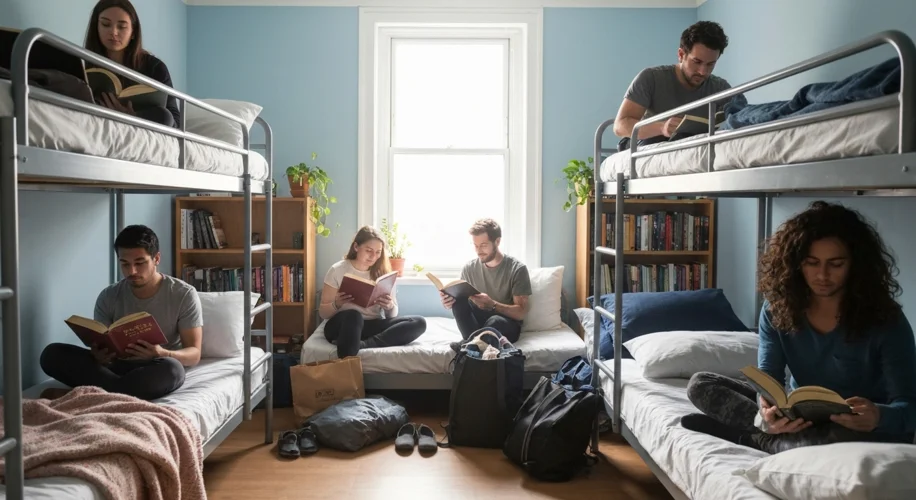As someone who spends a good deal of time in archives and visiting historical sites, the idea of shared accommodation often brings to mind the crowded inns of centuries past. While the amenities have certainly improved, the social dynamics of a shared space, like a hostel, can feel surprisingly complex. Recently, I came across a discussion on Reddit about hostel etiquette, and it struck a chord. It highlighted a common thread in travel: the balance between personal space and communal living, and the underlying anxieties that can accompany navigating these situations.
When we travel, especially to unfamiliar places, we step out of our comfort zones. For many, the hostel environment amplifies this feeling. It’s not just about sleeping in a room with strangers; it’s about shared bathrooms, common areas, and the unspoken rules that govern how people coexist. This isn’t entirely new. Think back to the 18th century, when long-distance travel often meant staying in coaching inns. While the circumstances were different – often more about necessity than budget travel – the need for some level of civility and consideration among travelers was paramount.
From a psychological perspective, travel can trigger a range of emotions. There’s the excitement of exploration, but also the vulnerability of being in an unfamiliar environment. For those who are naturally introverted or have social anxieties, a hostel can present a particular challenge. The close proximity to others, the need to be mindful of noise levels, and the potential for unexpected interactions can all contribute to stress. It’s a delicate dance of asserting one’s needs while respecting the needs of others.
So, what are some practical aspects of this hostel etiquette that stem from these social dynamics? It boils down to a few simple, yet crucial, points:
- Respect Quiet Hours: This is perhaps the most common point of contention. Understand that not everyone is on the same sleep schedule. If you’re returning late or waking up early, do so quietly. Use headphones for any entertainment, and avoid loud conversations.
- Keep Your Belongings Tidy: A shared dorm room can quickly become chaotic. Use your locker, keep your items contained within your designated space, and try not to spread your influence too far.
- Clean Up After Yourself: Whether it’s in the kitchen after making a meal or in the shared bathroom, leaving a space as you found it (or cleaner!) is a basic courtesy that goes a long way.
- Be Mindful of Noise: Even outside of quiet hours, loud phone calls or boisterous chatter in the dorm can be disruptive. Common areas are generally better for socializing.
- Communicate (When Appropriate): If there’s an issue, a polite, private word is usually more effective than passive-aggressive notes or loud complaints.
These aren’t complex rules, but they are rooted in a fundamental understanding of shared living. Just as historians study the social structures of the past to understand how people lived together, we can observe these simple courtesies in hostels as a microcosm of social interaction. They remind us that even in a transient space, a little consideration can make everyone’s journey smoother and more enjoyable. It’s about recognizing that we are all part of a temporary community, trying to make the most of our experiences.

